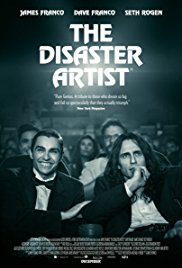 The Lavazza Italian Film Festival is upon us again. For those of you not in the know, when considering the wealth of film festivals that stream through Australia’s major cities – Chinese, French, Korean, Russian, Czech etc. – the Italian is one of the biggest. Having witnessed and gorged on the launch party’s traditional Italian catering, it’s clear they do it with style and elegance, and no shortage of panache, but a little bit of showing off surely never did anyone any harm.
The Lavazza Italian Film Festival is upon us again. For those of you not in the know, when considering the wealth of film festivals that stream through Australia’s major cities – Chinese, French, Korean, Russian, Czech etc. – the Italian is one of the biggest. Having witnessed and gorged on the launch party’s traditional Italian catering, it’s clear they do it with style and elegance, and no shortage of panache, but a little bit of showing off surely never did anyone any harm.
This year’s line-up is a rich assortment, overall providing a thorough cross-section of a fascinating if turbulent country. Just to give you a taste, Gianfranco Rosi’s documentary Sacro Gra, winner of the Golden Lion at Venice Film Festival, offers us a humanist portrait of the various characters living around Rome’s skirting roads. Other features lean heavily towards a feeling of nostalgia, such as Daniele Luchetti’s Those Happy Years, set in the bronze-tinged 70s and telling the story of a philandering artist whose work comes to be at odds with his wife and family. Consdering the tough times that now face Itlay in its current economic and political climate, this selection of films proves that it pays to be hopeful of better things to come. No film part of this selection better demonstrates this fact than the comedy The Mafia Kills Only in Summer, written and directed by and starring the Italian television satirist, PIF – Pierfrancesco Diliberto.
Set through the turbulent 70s and early 80s in the city of Palermo, this tale is told by the well-meaning but imbecilic Arturo (played as young boy by Alex Bisconti and later by PIF). From a young age, his life has been inextricably linked to the pervading influence of the Cosa Nostra, a branch of the Italian Mafia. Rival mobs, magistrates, police chiefs and court officials are among those targeted by this violent corrupting power who will go to great lengths to silence outspoken or actively resistant voices. However, the state powers are strangely silent on the matter of combating this regime, with Premier Giulio Andreotti denying a problem exists in Palermo. This is the line many would like to keep as well, especially when children like Arturo are becoming curious as to why this neighbourhood is so bloody.
Harbouring dreams of being a journalist, a hazardous occupation considering the current climate, Arturo has the endeavour but not so much the tact. At no time is this no more stark that when trying to impress Flora (Ginevra Antona and then Christiana Capatondi later). Getting your dream girl to like you is a tough gig when you’re a bumbling idiot, even more so when your idol Andreotti’s guidance is even sketchier than you are gullible. However, events will soon transpire to throw Palermo’s teething problems into the limelight and Arturo’s world into overdrive.

The deep-rooted corruption of power in the Palermo community in the 70s and early 80s is as fascinating as it is tragic, especially when viewed through the eyes of a boy raised in a cloud of denial. Of course, Arturo eventually grows up and becomes the wiser, but nonetheless this account of the state’s wilful ignorance of the brutal dealings of the Cosa Nostra is shocking in the sense that it was all allowed to transpire, but equally hopeful in the way PIF, Michele Astori and Marco Martani’s astute but amusing script has balanced a dark time with an innocent and unwitting tale of endeavour. Much should be also owed to the great performances from the PIF, Capatondi, Bisconti and Antona.
In analysing this film’s achievement, it’s interesting to compare this with the various other portrayals of organised crime around the world. The Red Riding trilogy in England was grim and brooding. In Australia, gang warfare has been glorified as a soapy action-adventure through the Underbelly franchise. In America, The Godfather was handled with Shakespearean drama, courtesy of Francis Ford Coppola. In Italy, a whole lot of funerals and pervasive corruption are interspersed around Arturo’s many attempts to woo Flora. Who would have thought a romantic comedy would do the trick? Then again, Italy as a country is one out of the box – it’s only logical that their films should be as well.
The Lavazza Italian Film Festival is screening in Palace Cinemas around the major cities throughout September and October.





